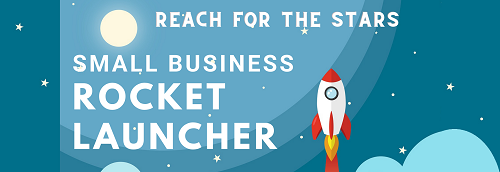

Christine McKay – Venn Negotiation
Christine launched Venn Negotiation to find common ground, level the playing field, and resolve complex issues for her clients. With over 25 years of experience, both international and domestic, Christine improves profitability and operational effectiveness through strategic contract integration.
Business Negotiation Strategist, Christine McKay, author of “Why Not Ask? A Conversation About Getting More,” has worked on behalf of numerous small and mid-sized companies and negotiated with many of the Fortune 500.
VennMasters™ is a negotiation training program designed to change the way you think about negotiation. Our level 1 program consists of a 2-hour per week, 6-week course with a 2-day practical. At the end of our program, you will be able to negotiate effectively for what you want.
SUBSCRIBE
Apple | Google | Spotify | Stitcher
RESOURCE
Discovery Session – Let’s get you “The Venn Negotiation Quiz” now Take Our Negotiation Style Quiz Now!
3 PRO TIPS:
1) Spend Time Getting Prepared
2) Understand the Culture.
3) Silence is the most important element
SPONSORS:
Venn Negotiation: Take the reins in your negotiation.
SHOW NOTES:
Today’s Audio MASTERCLASS:
Changing the Nature of Negotiation
00:00:59 – Harvard University
I’ve spoken for corporations events. I have spoken to all over the world. I have spoken at Harvard University, UC Irvine, a whole bunch of places. And I love speaking. So I’m always looking to do as much speaking as I possibly can about my favorite topic on the planet, which is a negotiation. And might I have an upcoming book called Why Not Ask a Conversation About Getting More? And I’m really excited about that.
00:08:14 – The one who is most prepared at the negotiation table will be the one who can control their emotions
I think the most important thing that small businesses need to be thinking about is spending an appropriate time getting prepared for their negotiations. 70 percent of the negotiation process is in the preparation. And the one who is most prepared at the negotiation table will be the one who can control their emotions the most as well, because they’re rooted, in fact. And not not not fiction, not faith, not emotion. And they’ll be able to also be more creative and more curious about their counterparts to get to more optimal outcomes.
00:12:27 – One of the ways you start to get more value out of it is by relying on your humanity
And my personal philosophy is that negotiation is nothing more than a conversation about a relationship, and you cannot win a relationship, but you can get more value out of it. And one of the ways you start to get more value out of it is by relying on your humanity, relying on your experiences and being transparent in sharing those in a very real way.
00:17:24 – I was negotiating one hundred – three hundred million dollar deals
you should always look when you’re when you’re doing a multicultural negotiation to be effective, you should always understand what the culture is of that that environment. And it’s a culture that’s really far from you. Then get somebody local who’s going to be able to help you. And this was something I learned very early in my. Professional negotiation career. I cut my teeth as a negotiator in Southeast Asia in the early 1990s and many of the countries I was in, in Korea, in Jakarta and Indonesia, Kuala Lumpur, Singapore, but in Korea in particular, there were not women Women were not even secretaries in the nineteen nineties. They did not they did not grace the doorway in many cases of of business. But I was negotiating one hundred, three hundred million dollar deals and I was able to be successful doing that because I understood enough to study the culture. I remember flying to Seoul the first time that I was going and Korean is very hard. So I find it a very difficult language. And I had my cassette tape because that’s what we had then.
00:28:29 – It was like you’re spending millions of dollars on the software and ask them three questions.
This is one of the things that people fail to do and I don’t care if it’s small company, mid-sized companies or big companies, people rarely spend enough time getting clear on what it is that they want out of the negotiation. And so I negotiated a I was part of a deal team that was working on a big merger in Canada. And I was also I was part of the work I was doing was renegotiating with some of their key suppliers as they were merging and creating a larger entity
And my client was like, OK, well, we use six hundred licenses of this software and we have to we have to have that many licenses and we might need more. And it was like you’re spending millions of dollars on the software and ask them three questions. I said, who uses it? How do they use it and when do they use it? And they could not ask that question. So they’re talking about continuing the relationship and using the software and potentially getting more of it because they thought that it was being used in a certain way.
00:38:49 – Negotiate in their native language and and we’ll figure it out.
When you put a language barrier in it and you’re and somebody is trying to translate it. I did a negotiation in Panama once and I was the only English native English speaker in the room. Everybody else was native Spanish, but they they started trying to negotiate in English. And I said, time out. I’m the old I’m the lowest common denominator in Earth. Don’t negotiate in my language just because I’m sitting here
That’s craziness, right.
I’ll figure it out, negotiate in your native language and and we’ll figure it out. Right. And so they did and they were stunned. But the thing is, is that, you know, there’s a UCLA study done from the nineteen seventies that talks about and there’s some there’s some peculiarities about the study, but it still highlights that there are three primary parts of communication, the words we speak, the tone with which to speak it and our nonverbal communications.
00:49:04 – Masters of Music focus on the space in between the notes
So his name is Jason Campbell. He is a musician. He composes meditative music and he said that when he was six years old, learning music, that his teacher told him that that most musicians focus on the notes that they’re playing, right. But Masters of Music focus on the space in between the notes. And so if if anybody who’s listening is a musician and you have a piano at home, he did this demonstration and he he hit a key and they quickly took his finger off the key just hit a key and the note just lingers. And then he hit another key and then the new note merged and blended with the previous note, and then he hit a chord. And then that core merged and blended with the lingering effects of the first note and the lingering effects of the second note and then embedded in that is the silence.
00:50:29 – There’s a lot more involved in negotiation than just the transactional aspect of the sale.
But sales is part of a negotiation. It’s not the whole of a negotiation. There’s a lot more involved in negotiation than just the transactional aspect of the sale. Because even when even if you’re selling to a company. Right. You can you can have the end user say, yes, I’m going to buy. But guess what? The end users and the final decision maker, you’ve got to get procurement involved. If it’s a big deal, risk management is going to be involved, legal’s going to be involved, et cetera.
00:50:46 – Shoan
Yeah, one of the things you said that was in that silence, when you’re just being quiet and someone says, are you still there? And then you said, yes, I’m just really interested in what you have to say. That’s like really a heartfelt statement that makes the other person feel validated, that they’re heard and listened to the whole thing about like listening and hearing. It’s when you’re out camping and then you say, oh, did you hear that … let’s listen. That’s the difference.
KILLER RESOURCES:
1) Free Follow-up Course: Learn from Shoan how to foster more trust and connect deeper on every sale!
2) Your Big Data: Follow Shoans FREE training & you’ll discover Your Big Data in less than an hour!
3) Netflix and Chill: Learn how to create a funnel that converts!

Recent Comments